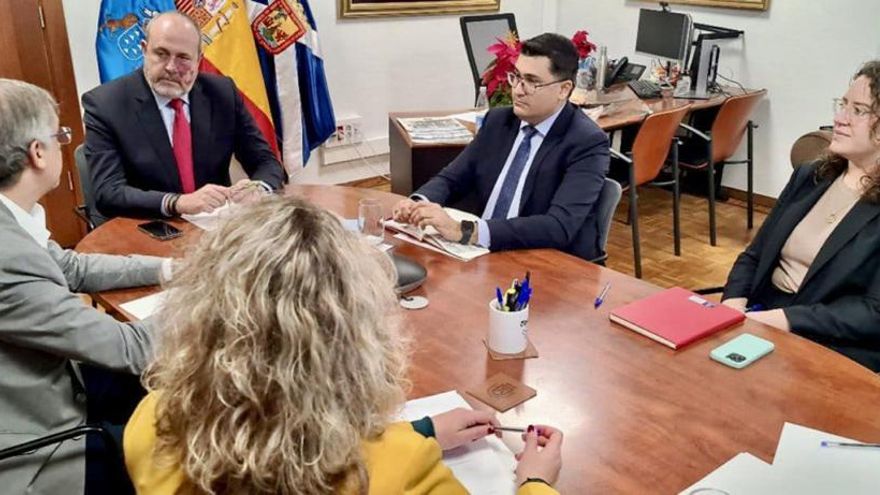
The Vice President and Minister of Public Works, Infrastructures, Transport and Mobility of the Council of Gran Canaria, Miguel Angel Perez del Pinotogether with the Vice President and Counselor of Public Works and Mobility of the Cabildo de Tenerife, Enrique Arriagahave announced that the councils of Gran Canaria and Tenerife will work together to improve fuel purchase conditions for their respective public transport. “We are aware that negotiating together helps us to get more out of our respective economies; that is, to make better use of the money of our citizens.”, indicated Pérez del Pino.
The current energy crisis derived from the war in Ukraine has caused a situation of economic inflation of fossil fuels that has brought to light the special dependence on Canary Islands regarding the energy sector. “Our characteristic geographical location, far from the mainland, and our condition of insularity cannot be an obstacle when it comes to negotiating what interests our citizens the most, which is nothing more than getting more benefit from our public money.” Arriaga expressed.
Taking advantage of the economy of scale will undoubtedly improve the price of fuel for public transport on both capital islands. The annual fuel consumption estimated by both councils together exceeds 40 million liters of diesel. “It is time to create an opportunity together from a possible individual weakness: Tenerife and Gran Canaria united to seek the best conditions makes us stronger, as islands, as an archipelago and as a society,” said Pérez del Pino. The Vice President of Council of Tenerife He wanted to highlight that “while others have always sought distancing, conflict and separation, we are working together because strength is born from union, and that strength is what improves the lives of all Canarians.”
Both councils are programming an agenda of contacts with the different agents of the energy market to establish a framework that strengthens the conditions of Tenerife and Gran Canaria for the coming years as far as the fuel market is concerned. “Today we are projecting the energy path of Gran Canaria and Tenerife for the next 15 years, as far as fuels are concerned, not only fossil fuels, but also thinking about the deployment of other energy materials such as Hydrogen,” indicated Pérez del Pine tree.
For his part, Arriaga expressed that they work with the idea of exploit the economy of scale in its entirety, helping energy agents to establish themselves on both islands and also enabling them to improve their benefits with joint work that boosts the economy on both capital islands. “The economy of scale will benefit both islands as a whole, but also whoever operates on them, because working with larger volumes of fuel also helps to reduce logistics and operating costs, for example,” said Arriaga.
The negotiation of criteria jointly between both island councils and the power to go together to the markets makes Gran Canaria and Tenerife more resilient to fluctuations in the energy market and will propose a roadmap towards the decarbonization of their respective public transport sectors. “We share the idea that the future of Tenerife and Gran Canaria is written together”, indicated both island officials.
















